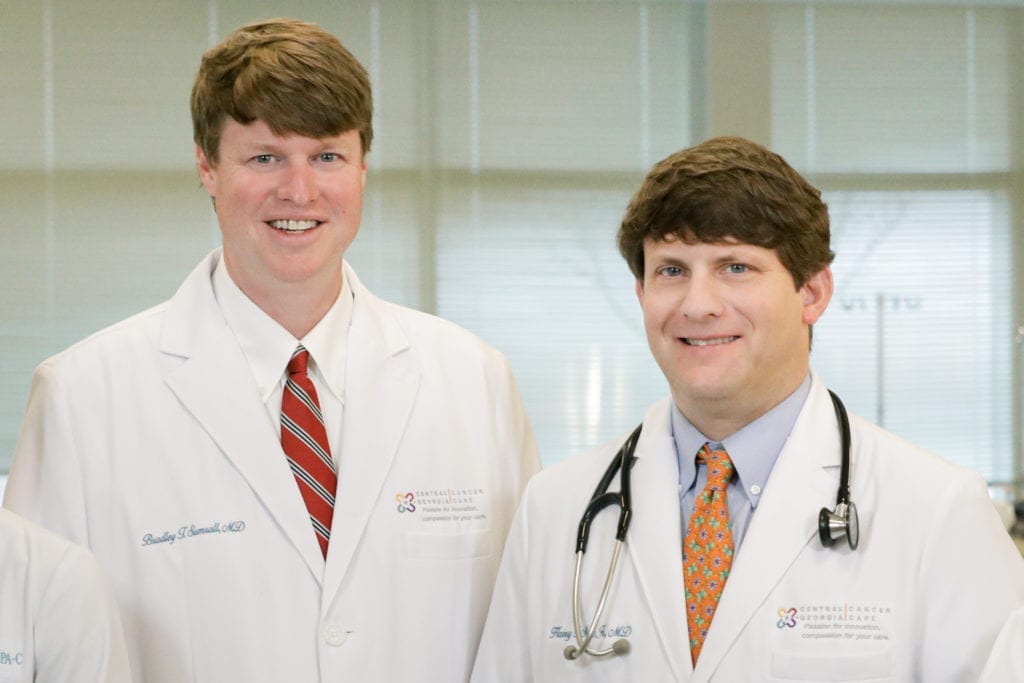Colorectal Cancer What is Colorectal Cancer?



What is Colorectal Cancer?
Colorectal cancer begins when healthy cells in the lining of the colon or rectum change and grow out of control.
Symptoms of Colorectal Cancer:
The symptoms for colon and rectal cancer surface differently. Many people with colon cancer experience no symptoms in the early stages of the disease. When symptoms appear, they’ll likely vary, depending on the cancer’s size and location in your large intestine. Unlike colon cancers, most rectal cancers cause symptoms, as listed below.
Colon Cancer Symptoms:
- A persistent change in your bowel habits, including diarrhea or constipation or a change in the consistency of your stool
- Rectal bleeding or blood in your stool
- Persistent abdominal discomfort, such as cramps, gas or pain
- A feeling that your bowel doesn’t empty completely
- Weakness or fatigue
- Unexplained weight loss.
Rectal Cancer Symptoms:
- Red blood seen in the stool
- Unexplained constipation alternating with diarrhea
- Changes in the diameter of stool (patients may notice “pencil-thin stools”)
- Tenesmus, which is a sensation of needing to have a bowel movement when you don’t and/or being unable to empty the rectum.
If tumors are more advanced, they may invade the nearby tissues and cause bladder incontinence or pain due to pressure in the buttocks or perineum.
Types of Colorectal Cancer Types of Colon and Rectal Cancers
Colon cancer is a type of cancer that begins in the large intestine (colon), the final part of the digestive tract, and typically affects older adults, though it can happen at any age. In 95% of colon cancer cases, abnormal cell growth forms a noncancerous polyp (adenomatous polyp) that could become a cancerous tumor (adenocarcinoma) if not detected.
Much less common types of tumors can start in the colon and rectum, too. These include:
Carcinoid tumors
Carcinoid tumors which start from special hormone-making cells in the intestine.
Gastrointestinal stromal tumors (GISTs)
Gastrointestinal stromal tumors (GISTs) which start from special cells in the wall of the colon called the interstitial cells of Cajal. Some GISTs are benign. Gastrointestinal stromal tumors can be found anywhere in the digestive tract and are not common in the colon.
Lymphomas
Lymphomas are cancers of immune system cells. They mostly start in lymph nodes VI, but they can also start in the colon, rectum, or other organs.
Sarcomas
Sarcomas can start in blood vessels, muscle layers, or other connective tissues in the wall of the colon and rectum. Sarcomas of the colon or rectum are rare.
Second opinion Understanding Your Condition with a Second Opinion
Getting a second opinion means asking another physician to review all your medical reports and test results, give an opinion about your diagnosis and how it should be treated. CGCC is often asked for second opinions about a patient’s cancer diagnosis.
Second Opinion?
“Depending on the size of the tumor, chemotherapy may be used before surgery to shrink colorectal tumors. Targeted therapy, a kind of chemo that targets the proteins which support cancer development, is also used when appropriate. These treatments, in conjunction with surgery or radiotherapy if required, seem to prevent recurrence in most of our patients.”
Harry F. Moore, M.D.
Questions Questions For Your Doctor
As your partners for health, CGCC wants to help you make informed decisions about your health care. Please feel free to ask any question you may have, even those beyond the list that follows. It may also be helpful to bring someone along to your appointments to take notes.
- What type of colon or rectal cancer do I have?
- Where exactly is the cancer located?
- Can you explain my pathology report (laboratory test results) to me?
- What stage is the colon or rectal cancer? What does this mean?
- Has my tumor been tested for microsatellite instability and other molecular features?
- Would you explain my colorectal cancer treatment options?
- What clinical trials are available for me? Where are they located, and how do I find out more about them?
- What treatment plan do you recommend? Why?
- What is the goal of each treatment? Is it to eliminate the cancer, help me feel better, or both?
- Who will be part of my treatment team, and what does each member do?
- How will this treatment affect my daily life? Will I be able to work, exercise, and perform my usual activities?
- Will this treatment affect my ability to become pregnant or have children?
- What long-term side effects may be associated with my cancer treatment?
- If I’m worried about managing the costs of cancer care, who can help me?
- If I have a question or problem, who should I call?

“Don’t be fooled by the name! This is a happy place where a professional staff is using state-of-the-art equipment and drugs to prolong and improve lives! Can’t think of anyone who wants to be here, but so thankful it’s available to us!” – Dana

